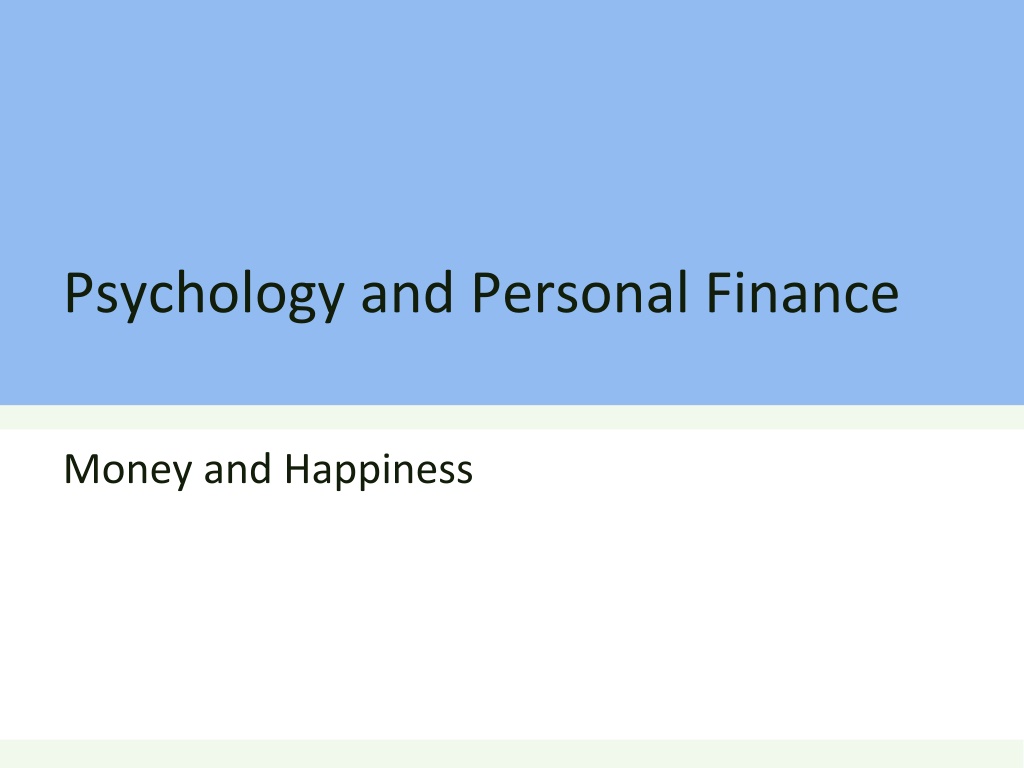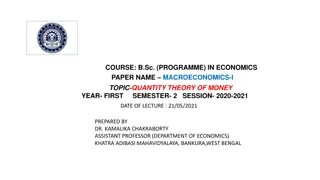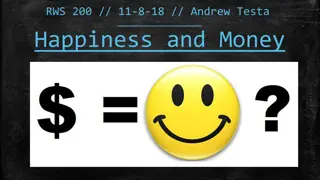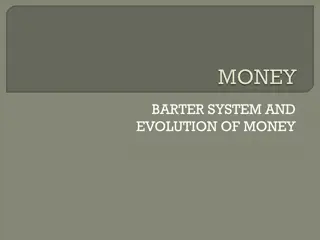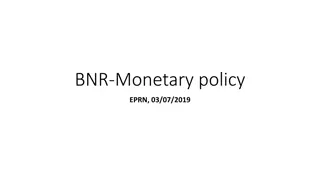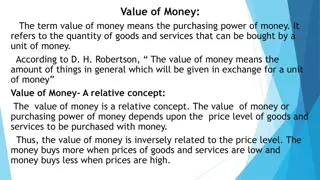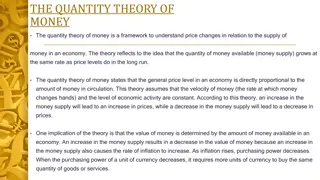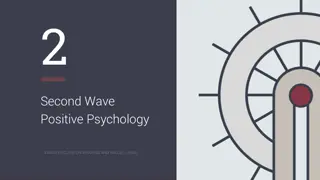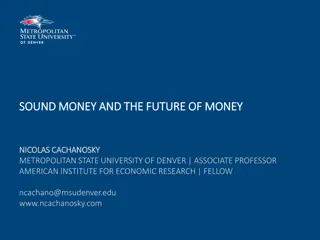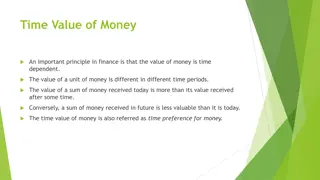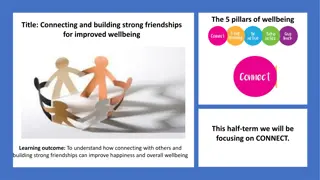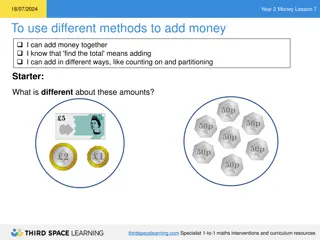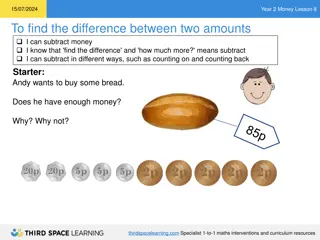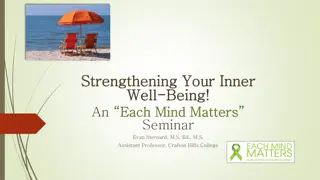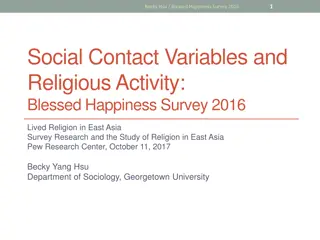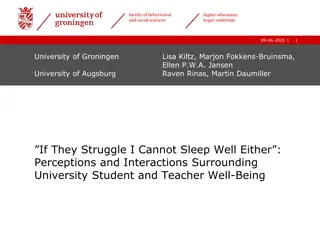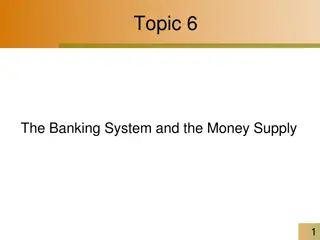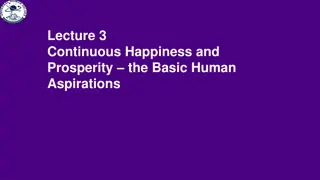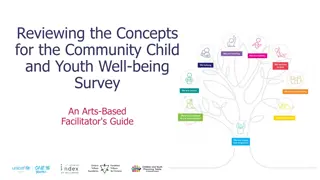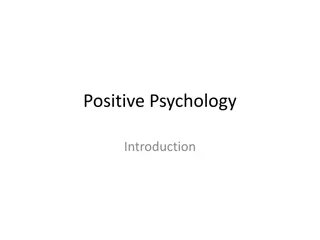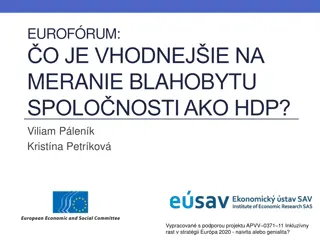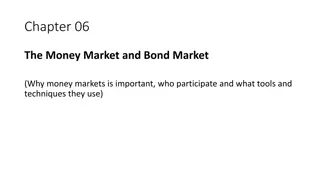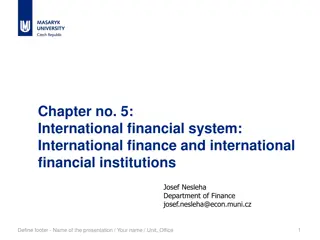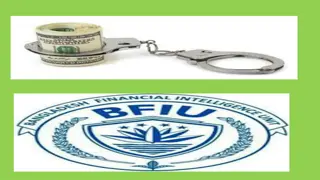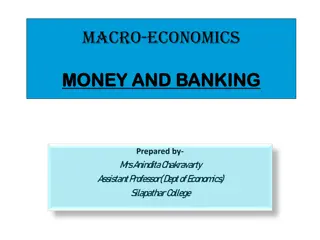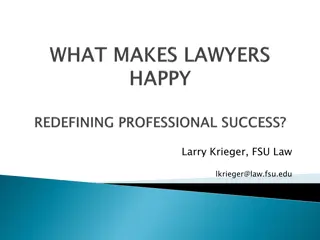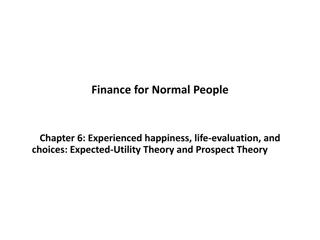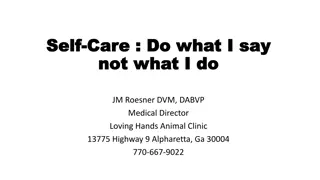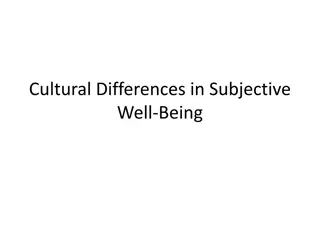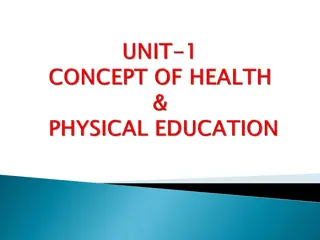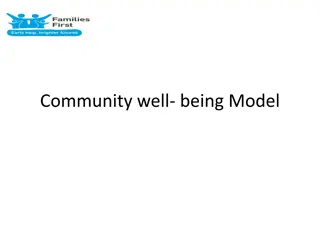Exploring the Link Between Money, Happiness, and Personal Well-Being
Delve into the intricate relationship between money, happiness, and personal fulfillment through a series of thought-provoking insights. Discover the impact of wealth, marriage, youth, education, and looks on one's overall happiness and well-being. Uncover the nuances of what truly contributes to a fulfilling life beyond material possessions.
Download Presentation

Please find below an Image/Link to download the presentation.
The content on the website is provided AS IS for your information and personal use only. It may not be sold, licensed, or shared on other websites without obtaining consent from the author. Download presentation by click this link. If you encounter any issues during the download, it is possible that the publisher has removed the file from their server.
E N D
Presentation Transcript
Psychology and Personal Finance Money and Happiness
Overview What makes us happy? Do we really know what makes us happy? How to be happier Money and Happiness 2
Do These Things Make Us Happy? Wealth? 4
Income and Happiness Real Income Per Head Percentage Very Happy 300 100% 250 Percentage Very Happy 75% Real Income (1945=100) 200 150 50% 100 25% 50 0 0% 1945 1950 1955 1960 1965 1970 1975 1980 1985 1990 1995 2000 Sources: Layard (2005); Easterlin (2001) 5
Do These Things Make Us Happy? Wealth? Marriage? 6
Marriage and Happiness 100% 80% Life Satisfaction 60% 40% 20% 0% -4 -3 -2 -1 0 1 2 3 4 5+ Years Relative to Marriage Sources: Kahneman et al (2004) 7
Do These Things Make Us Happy? Youth? Wealth? Marriage? 8
Youth and Happiness Sources: Inglehart (1990) 9
Do These Things Make Us Happy? Youth? Wealth? Marriage? Education? 10
Education and Happiness There is no effect on happiness across countries and only a small effect within countries Source: Helliwell (2003) 11
Do These Things Make Us Happy? Youth? Education? Wealth? Marriage? Looks? 12
Looks and Happiness Looks don t make us happy after taking away the hair, makeup, jewelry and nice clothing Source: Diener, et al (1995) 13
Do These Things Make Us Happy? Youth? Education? Wealth? Marriage? Looks? Gender? 14
Gender and Happiness Men are more prone to alcoholism, while women to depression Source: Layard (2005) 15
Do These Things Make Us Happy? Youth? Education? Wealth? Marriage? Looks? Gender? Religion? 16
Religion and Happiness Religion does make us happy but why? Is it the God part which makes us happy, or the community part? Sources: Seligman (2001); Putnam (2000); Layard (2005) 17
Do These Things Make Us Happy? Youth? Education? Wealth? Marriage? Looks? Religion? Gender? Family? 18
Family and Happiness People with the highest levels of happiness have strong social relationships Sources: Seligman (2001); Putnam (2000); Layard (2005) 19
Do These Things Make Us Happy? Youth? Education? Wealth? Marriage? Looks? Religion? Gender? Family? 20
What Weve Learned (So Far) What makes us happy? 21
Do We Really Know What Makes Us Happy?
Long Term vs. Short Term Happiness In the moment and Morning after have very different levels of happiness Momentary happiness and life satisfaction could be dramatically different too Obese people love to eat the food they do but are not happy with their overall life Sources: Kahneman et al (2004), Kahneman et al (2006) 25
The Focusing Illusion We fail to recognize that people do not continuously think about their circumstances, whether positive or negative As a result, we tend to exaggerate the effect of various circumstances on well-being Paraplegics are not as miserable as you think and lottery winners are not as happy as you think Sources: Kahneman et al (2004); Kahneman et al (2006) 26
The Focusing Illusion Would you be happier than these people if you won the lottery? 27
What Weve Learned (So Far) What makes us happy? Do we really know what makes us happy? Life satisfaction vs. experienced happiness The focusing illusion Relative income 29
Can We Increase Our Happiness? The Nature View: Happiness is like height: We are born with it Twins: 50% Genetic, 8% Circumstantial (income, education, etc.) The Nurture View: Although people are genetically different, we can consistently affect our happiness levels 42% is a lot left unexplained can we do something about it? Source: Lykken (1996) 31
Trick # 1 How to Spend Your Time Percentage of Time Unhappy (U-index) 27.8% 19.4% 14.9% 11.4% 10.9% 11.0% Passive leisure Engaged leisure Eating Talking Home Work and commute compulsory Source: Kahneman et al (2004) 32
Trick #2 Positive Psychology Positive psychology identifies 3 distinct routes to happiness Positive emotion and pleasure Engagement Meaning Sources: Seligman (2002); Peterson et al (2005) 33
Specific Tricks That Work Gratitude visit Write and deliver a letter of gratitude to someone who had been kind but never properly thanked Three good things in life Write down 3 things that went well every night for 1 week and provide a causal explanation for each good thing Using signature strengths in a new way Use 1 of top 5 signature strengths in a new and different way daily for 1 week Source: Seligman et al (2005) 34
What Weve Learned (So Far) What makes us happy? Do we know what makes us happy? How to be happier How to spend your time Positive psychology 35
Economist Advice More is Better! 37
Economics vs. Hedonomics One analogy A person that loves wooden blocks becomes bored playing with the ones he has had for a while How can we make him happier? A solution from Economics: Acquire more blocks! A solution from Hedonomics: Learn to combine the blocks in new and more satisfying ways! Source: Hsee et al (2007) 38
Examples of Hedonomics at Work Changing reference points can change the hedonic experience: Don t compare yourself to your MBA classmates but your high school classmates Reference point can be real or counterfactual: Are Olympic bronze medalists happier than silver medalists? Source: Medvec et al (1995) 39
Hedonic Arbitrage Increasing investors / consumers hedonic experience without necessarily increasing their income, wealth, or spending 40
Trick # 1 Consider Opportunity Costs BMW X3 and Free Gas for 3 Years BMW X5 $46,200 $46,200 41 41
Trick # 2 Create Multiple Accounts Nest-egg account managed by professionals and kept largely out of sight Have fun account managed by investor with low transactions costs and lots of feedback (although perhaps with limits on leverage and non-zero liability investments) 42
Potential Benefits of These Accounts Investors get to have fun (and possibly make some money) At the same time, they are protected from the downside of the natural desire to meddle 43
What Weve Learned What makes us happy? How to be happier How to spend your time Positive psychology Do we really know what makes us happy? Life satisfaction vs. experienced happiness The focusing illusion Relative income Money and happiness Hedonomics Hedonic Arbitrage 44
Class Exercise Create a business model to make money by promoting happiness 45
Class Discussion Should the government consider implementing policy to promote happiness as well as wealth? 46
